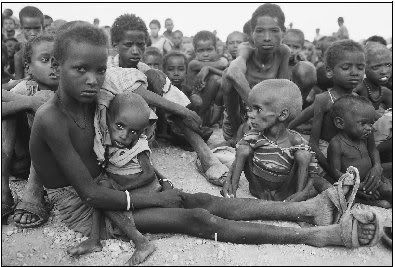A Christmas Carol: Learning How To Give

Charles Dickens wrote A Christmas Carol in 1843. Apparently he wrote this enduring and endearing work as a "potboiler", which is an artistic work created only to make money. Dickens was in debt. The fact that he wrote this piece for money in no way makes it any less a masterpiece. In fact it was with this piece that Charles Dickens redefined our understanding of Christmas. His tale outlines the themes and sentiments that are the basic stuff of our modern Christmas celebrations.
Scrooge is a bitter and selfish miser, consumed with the accumulation of wealth, and scorning all human contact and emotion. He is visited, on Christmas Eve, by the ghost of his deceased partner Jacob Marley. Marley, whose ghost must carry the long and heavy chain he "forged in life", warns Scrooge that the chain that he himself is forging is, by now, much longer and heavier than his own.
He tells Scrooge that he may still have a chance of escaping his fate. He will be visited by three ghosts over the course of a troubled Christmas Eve. His bitterness and miserliness are revealed to him by the Ghosts of Christmas Past, Christmas Present, and Christmas Yet To Come. His place in the lives of others, past, present, and future is made clear to him. Scrooge, humbled and enlightened by the experiences of his visitations, wakes on Christmas morning with a new heart.
The scene pictured above is of Scrooge, the cynical miser that is the main character of the story, being visited by the Ghost of Christmas Present. The ghost reveals to Scrooge two pitiful figures hiding under its' robes, Ignorance and Want, the two main causes of misery and suffering in the world. This is how Dickens wrote the scene:
``Forgive me if I am not justified in what I ask,'' said Scrooge, looking intently at the Spirit's robe, ``but I see something strange, and not belonging to yourself, protruding from your skirts. Is it a foot or a claw!''
``It might be a claw, for the flesh there is upon it,'' was the Spirit's sorrowful reply. ``Look here.''
From the foldings of its robe, it brought two children; wretched, abject, frightful, hideous, miserable. They knelt down at its feet, and clung upon the outside of its garment.
``Oh, Man! look here. Look, look, down here!'' exclaimed the Ghost.
They were a boy and girl. Yellow, meagre, ragged, scowling, wolfish; but prostrate, too, in their humility. Where graceful youth should have filled their features out, and touched them with its freshest tints, a stale and shrivelled hand, like that of age, had pinched, and twisted them, and pulled them into shreds. Where angels might have sat enthroned, devils lurked, and glared out menacing. No change, no degradation, no perversion of humanity, in any grade, through all the mysteries of wonderful creation, has monsters half so horrible and dread.
Scrooge started back, appalled. Having them shown to him in this way, he tried to say they were fine children, but the words choked themselves, rather than be parties to a lie of such enormous magnitude.
``Spirit! are they yours?'' Scrooge could say no more.
``They are Man's,'' said the Spirit, looking down upon them. ``And they cling to me, appealing from their fathers. This boy is Ignorance. This girl is Want. Beware them both, and all of their degree, but most of all beware this boy, for on his brow I see that written which is Doom, unless the writing be erased. Deny it!'' cried the Spirit, stretching out its hand towards the city. ``Slander those who tell it ye! Admit it for your factious purposes, and make it worse! And bide the end!''
``Have they no refuge or resource?'' cried Scrooge.
``Are there no prisons?'' said the Spirit, turning on him for the last time with his own words. ``Are there no workhouses?''
Later, in a desperate plea to the ghost of Christmas Yet to Come, who has revealed to Scrooge the dire consequences of the life he has lead, both for himself and others, Dickens writes:
``Good Spirit,'' he pursued, as down upon the ground he fell before it: ``Your nature intercedes for me, and pities me. Assure me that I yet may change these shadows you have shown me, by an altered life!''
The kind hand trembled.
``I will honour Christmas in my heart, and try to keep it all the year. I will live in the Past, the Present, and the Future. The Spirits of all Three shall strive within me. I will not shut out the lessons that they teach. Oh, tell me I may sponge away the writing on this stone!''
Scrooge awakens from his last visitor and realizes that he is alive, in the present, and it is Christmas Day! He sets about spreading good cheer and plenty of ready cash and is delighted to have the opportunity of a fresh and humanitarian start. The story ends with the words:
``A merry Christmas, Bob!'' said Scrooge, with an earnestness that could not be mistaken, as he clapped him on the back. ``A merrier Christmas, Bob, my good fellow, than I have given you for many a year! I'll raise your salary, and endeavour to assist your struggling family, and we will discuss your affairs this very afternoon, over a Christmas bowl of smoking bishop, Bob! Make up the fires, and buy another coal-scuttle before you dot another i, Bob Cratchit.''
Scrooge was better than his word. He did it all, and infinitely more; and to Tiny Tim, who did not die, he was a second father. He became as good a friend, as good a master, and as good a man, as the good old city knew, or any other good old city, town, or borough, in the good old world. Some people laughed to see the alteration in him, but he let them laugh, and little heeded them; for he was wise enough to know that nothing ever happened on this globe, for good, at which some people did not have their fill of laughter in the outset; and knowing that such as these would be blind anyway, he thought it quite as well that they should wrinkle up their eyes in grins, as have the malady in less attractive forms. His own heart laughed: and that was quite enough for him.
The fact that Dickens wrote this marvelous story to get out of debt is amazing and ironic. That he chose for his main character a man obsessed with money and in desperate need of redemption for his avarice is, I think, more than coincidental. Debt, in Victorian England, could mean the Workhouse or even Prison for those unfortunate enough to be unable to pay their way. A great many social ills were fuelled by lack of adequate money and debt. Child mortality, violent crime, alcohol addiction, prostitution, and despair were rampant in Victorian society and Dickens brought the plight of the poor to light in his works. A Christmas Carol did allow Dickens to pay his debtors...but many are not that fortunate.

The lessons of poverty and debt are as relevent today as they were all that while ago. The developing world is burdened with crippling debt, debt they will never be able to pay. Millions struggle fore mere survival, and many will fail in that struggle. 98% of children who die before the age of five are in developing countries. Disease, war, famine, poverty, even slavery are the stuff of everyday life for millions around the world. Perhaps the West, like Scrooge, should awake one day and set about spreading good cheer, forgiving debt, and get a little taste of redemption. If we ever hope to eliminate Ignorance and Want, the real lesson, for all of us Scrooges, is learning how to give.


<< Home